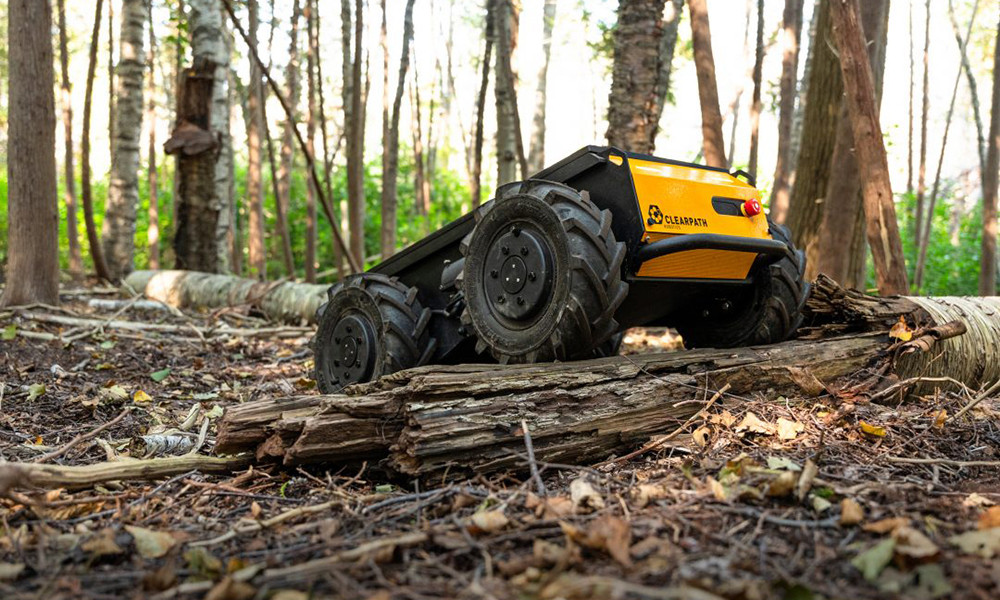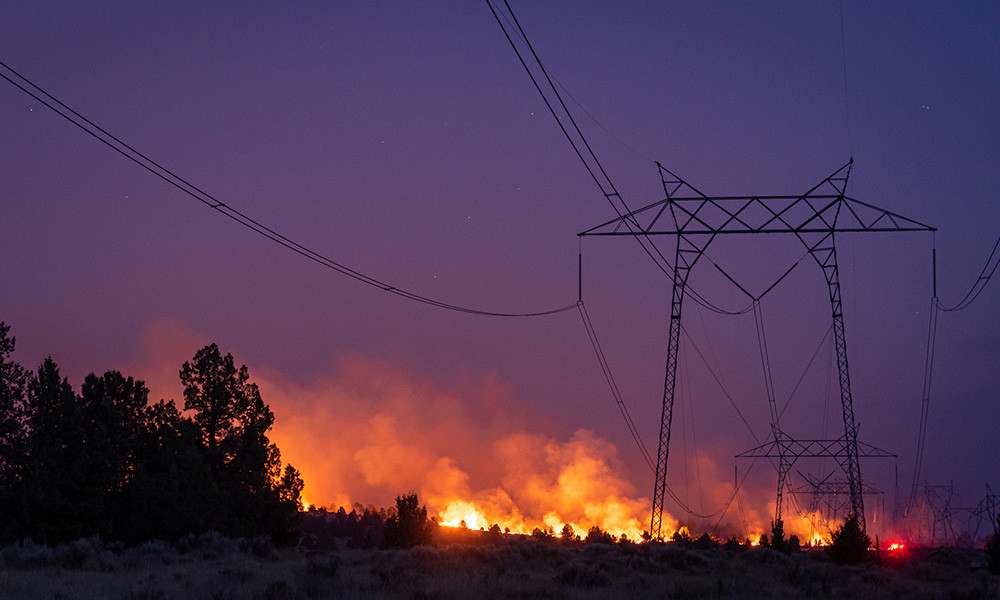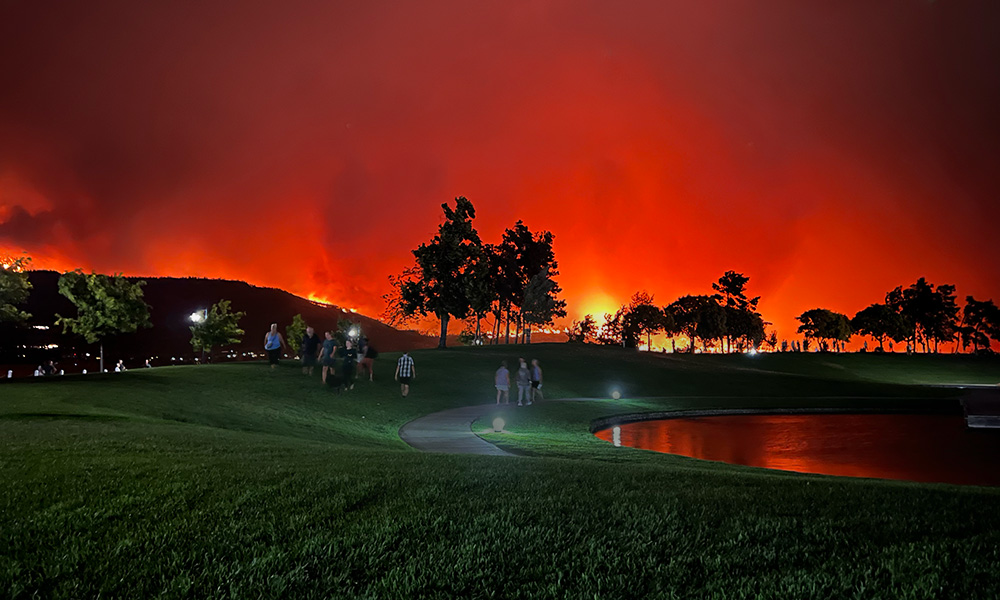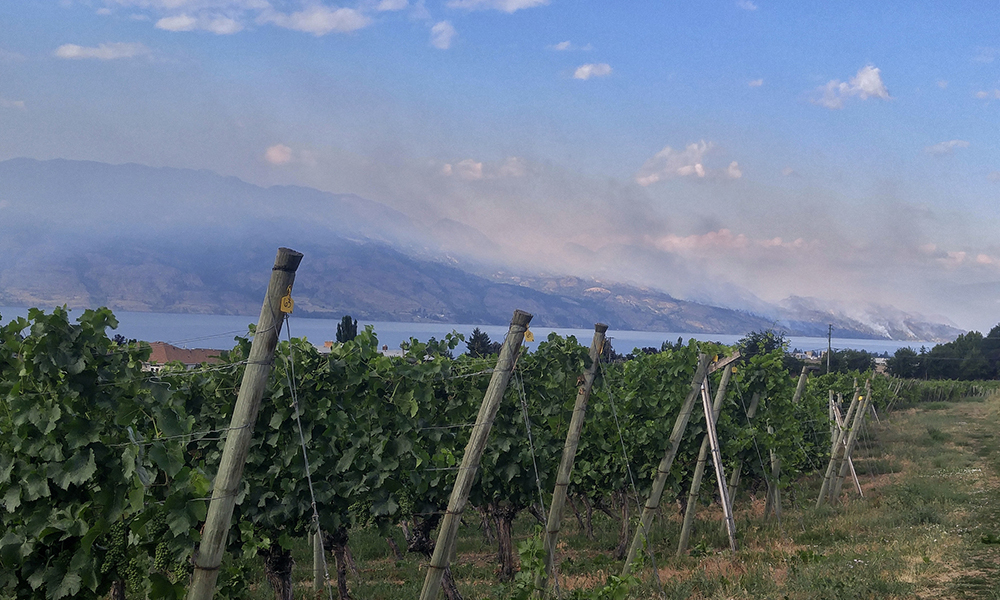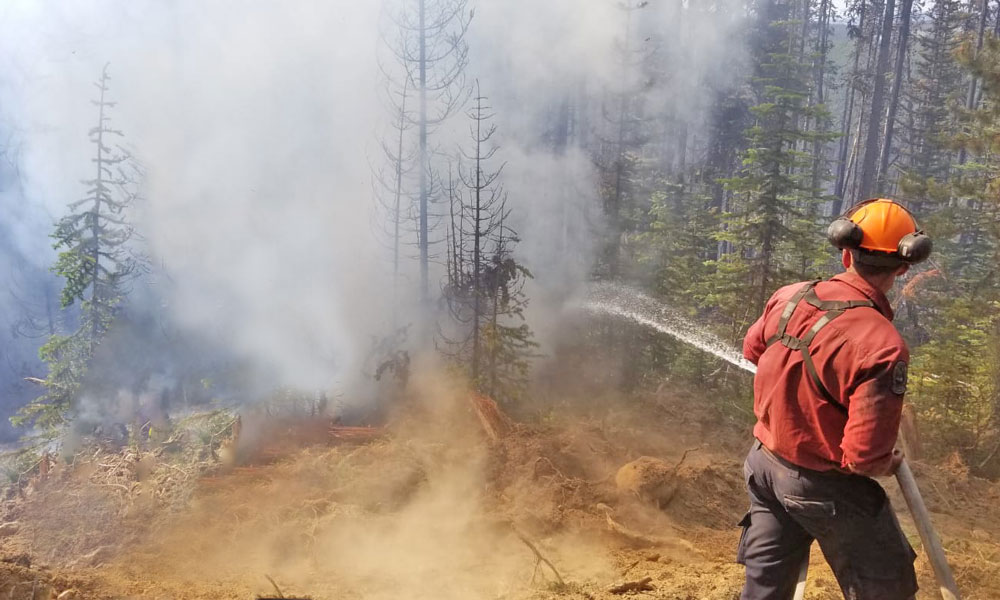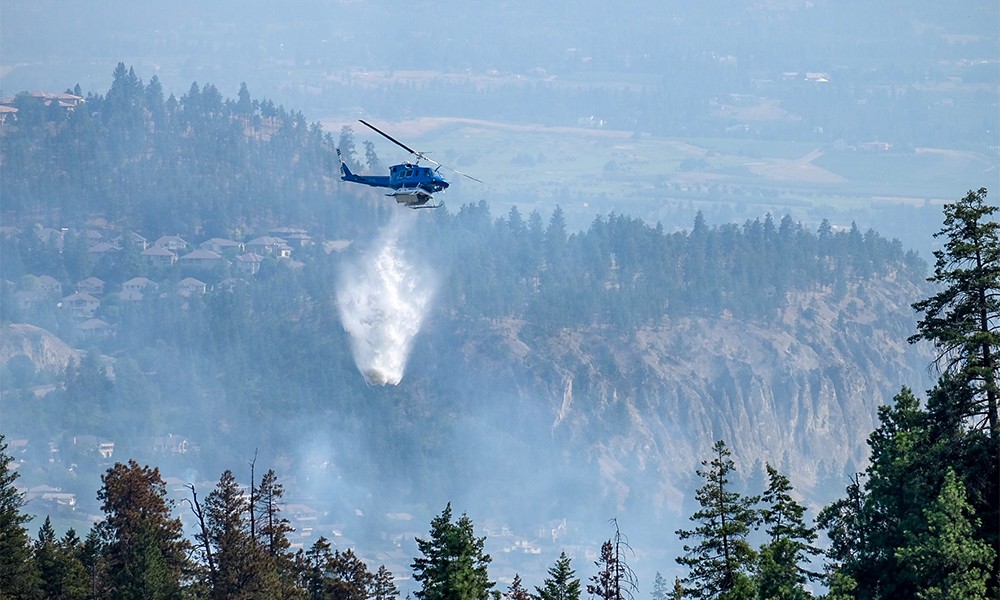focus areas and researchers
The Irving K. Barber Faculty of Science is home to several research and education programs designed in anticipation of, and response to, increasingly impactful wildfires. Our research is conducted in close partnership with Indigenous communities, especially in the Okanagan.
Equipped with satellite-connected sensors, 5G network (in partnership with Rogers Communications), and artificial intelligence-assisted cameras, our researchers develop ways to monitor the forest landscape and fire with expansive reach and capacity.
Researchers:
- Mathieu Bourbonnais, Assistant Professor | Earth, Environmental and Geographic Sciences
Our “Living with wildfire in the BC Southern Interior” research cluster integrates various disciplines to address wildfire challenges in the Thompson–Okanagan region, one of Canada’s most fire-prone landscapes. We also co-lead UBC’s Centre for Wildfire Coexistence with cutting-edge research on wildfire management. Our researchers study wildfire imagery, fire valuation and management, wildfire nature–cultures, and the pyrodiversity–biodiversity relationship towards proactive adaptation solutions for resilient ecosystems and communities.
Researchers:
- Mathieu Bourbonnais, Assistant Professor | Earth, Environmental and Geographic Sciences
- Kevin Hanna, Associate Professor | Earth, Environmental and Geographic Sciences
- Lael Parrott, Professor | Biology and Earth, Environmental and Geographic Sciences
Our researchers are key members of the new US–Canada’s Global Centre on Climate-Resilient Western Interconnected Grid, which aims to develop grid resilience for one of North America’s two major interconnected power grids in the face of intensifying wildfire and other extreme disturbances. Innovative and robust modelling tools that reflect the new reality of wildfire are also being developed.
Researchers:
- W. John Braun, Professor | Computer Science, Mathematics, Physics and Statistics
- Kevin Hanna, Associate Professor | Earth, Environmental and Geographic Sciences
- John R.J. Thompson, Assistant Professor | Computer Science, Mathematics, Physics and Statistics
A powerful predictive framework for proactive biodiversity conservation strategies in the face of climate change is being developed with strong focuses on the impacts of wildfire and post-fire salvage logging on forest mammals. Taking advantage of cutting-edge big data analysis tools, our researchers investigate the resilience of wild populations of plants, animals and soil microbiota to changing conditions, including links between behavioural flexibility to conservation efforts. Wildlife restoration and resilient ecosystem engineering programs are also being established based on latest advances in understanding the impact of wildfire and other forest landscape modifications on the whole ecosystems.
Researchers:
- Tal Avgar, Assistant Professor | Biology
- Adam Ford, Associate Professor | Biology
- Miranda Hart, Professor | Biology
- Karen Hodges, Professor | Biology
- Michael Noonan, Assistant Professor | Biology
Towards mitigating the intensifying impact of wildfire and smoke on crops (including grapevine), our research programs partner with farmers and Agriculture & Agri-Food Canada researchers to develop smoke protection strategies and sustainable agricultural practices by combining climate data analytics, analytical chemistry, genomics, and soil microbiology. The Centre for Environmental Assessment Research and the “Living with wildfire in the BC Southern Interior” research cluster also focus on understanding the new reality and identifying solutions to build resilient communities in anticipation of severe wildfire and other destructive environmental/geographical events.
Researchers:
- Kevin Hanna, Associate Professor | Earth, Environmental and Geographic Sciences
- Miranda Hart, Professor | Biology
- Lael Parrott, Professor | Biology and Earth, Environmental and Geographic Sciences
- Wesley Zandberg, Associate Professor | Chemistry

Centre for Wildfire Coexistence
Revolutionizing Wildfire Preparedness in BC
The Centre for Wildfire Coexistence (CWC) responds to an escalating need to proactively adapt forestry and land management practices with the aim of restoring healthy and resilient forests, as communities adapt to a changing climate.
Wildfire programs
Get involved with climate-change resilience and wildfire research through related UBCO programs.
Earth, Environmental and Geographic Sciences
Fundamentals of Wildland Fire Ecology
and Management
Presented from both Indigenous and western perspectives, this program combines knowledge of western fire science and Indigenous ways of knowing with landscape and fire ecology and social sciences.

Graduate science programs
Choose from a variety of themed and interdisciplinary programs.
All degrees and programs
Find a program that fuels your passion and opens new ways of thinking.
UBCO Research highlights
Learn how UBC Okanagan researchers are pursuing climate-change resilience and wildfire research and the far reaching impacts of their findings.
In the media
Our wildfire research expertise is featured by some of the world’s largest and most-trusted media.
- Castanet: UBCO teams up with Rogers and the City of Kelowna to use AI to predict wildfires
- CBC: Making friends with fire
- Capital News: Future-proofing the Okanagan to flourish
- CBC’s The National: What Canada can learn from how First Nations prevent wildfire disasters
- The New York Times: How Megafires are Remaking the World
- Capital News: UBC Okanagan involved with AI pilot project for early detection of wildfires
- CTV: Wildlife unseen casualty as forests burn in worst wildfire season of the century
- CBC: Fast Fires
- Global News: UBC Okanagan research could help target wildfire mitigation
- CBC: New tool tests effects of wildfire smoke on B.C. wine


